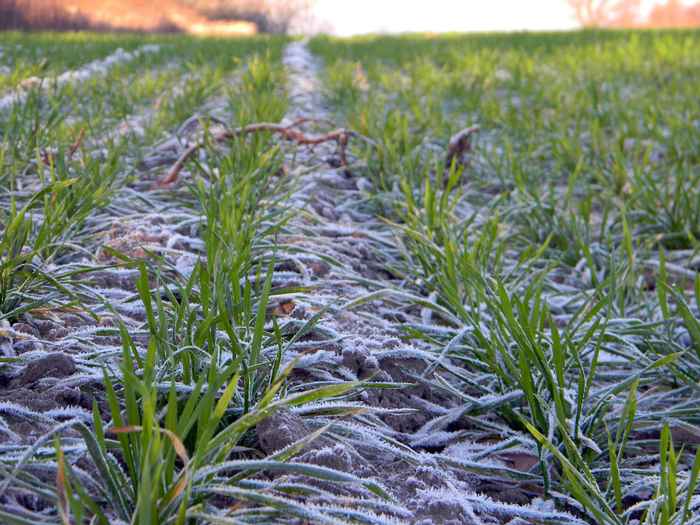UvA researchers among ‘BoostCrop’ team to win Royal Society of Chemistry Horizon Prize
For research into boosting crop growth using molecular solar harvesting
25 June 2025

The Horizon Prize is awarded annually to groups, teams and collaborations making discoveries and innovations that push the boundaries of science. The BoostCrop team have pioneered the development of a library of biocompatible molecules that harness solar ultraviolet (UV) radiation. These molecules are applied onto plants as a water-based foliar spray. They then absorb UV radiation, convert this to heat and provide the crop with supplementary heat. This encourages successful crop growth in cooler geographical regions and helps mitigate against sudden daytime frost damage.
The BoostCrop team is coordinated by Vasilios Stavros, professor of Physical Chemistry at the universities of Warwick and Birmingham, and consists of almost forty researchers from academia and industry. They joined forces in 2018 in a project that received nearly 5 million euros from the European 'Future and Emerging Technologies' programme. Contributors at UvA are Wybren Jan Buma, professor of Molecular Photonics at the Van ‘t Hoff Institute for Molecular Sciences; his co-workers Jiayun Fan, Hans Sanders and Ivan Romanov; and Teun Munnik, head of Plant Cell Biology at the Swammerdam Instititute for Life Sciences, together with Xandra Schrama, research technician in plant molecular biology.
‘The best is yet to come’
For Wybren Jan Buma, who headed the Boostcrop research on designing and synthesizing molecules that can use UV radiation to generate heat, the project has shown how fundamental science and developing applications are not two disparate entities. ‘Fundamental science provides the solid basis and the common language that is needed to tackle the intrinsic multidisciplinary nature of actual problems. Only then can you arrive at out-of-the-box solutions, as we have demonstrated in Boostcrop. And the best is yet to come! Our molecular heaters will now be further optimized towards large-scale commercial application. This is precisely what we set out to achieve with Boostcrop: develop solutions to ensure world food security.’
Teun Munnik’s team analysed the molecules’ capacity to generate heat in various plant species. They figured out how to stick them on leaf surfaces, and tested their effect on the plant’s physiology. ‘As a biologist, it was a great experience to closely work together with a diverse group of chemists and companies. We are very proud to have been part of this endeavor and to receive this prize.’
According to Vasilios Stavros, the BoostCrop project has demonstrated ‘how blue-skies research can potentially have massive impact on society. Food security is a growing area of concern, with the United Nations listing it as part of their Sustainable Development Initiatives. Frost damage alone is estimated to cost Europe €3.3 billion per annum in reduced harvests. We believe we have made a small but very important contribution to this sustainable development initiative.’
The Horizon Prize is one of many prizes awarded by the Royal Society of Chemistry, recognizing excellence in the chemical sciences for more than 150 years. The Horizon Prizes are for groups, teams and collaborations of any form or size who are opening up new directions and possibilities in their field, through ground-breaking scientific developments. Other prize categories include those for Research & Innovation, those for Education (announced in November), the Inclusion & Diversity Prize, and Volunteer Recognition Prizes. The Boostcrop collective will receive a trophy, while each team member will also get their own special individual token. RSC will release a special video showcasing the project.